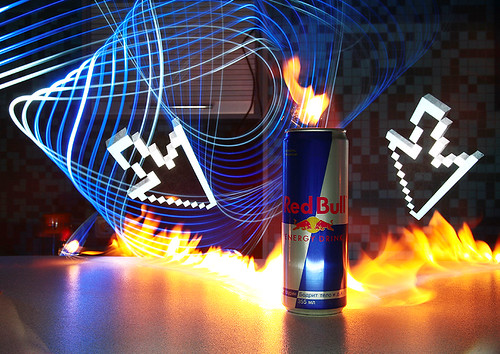Energy drinks are undergoing dramatic changes. The high-octane and sugary concoctions from Red Bull GmbH, Monster Beverage Corp. have long dominated the market.
These industry giants face a major challenge as consumers place a greater emphasis on health and wellbeing.
This shift is a turning point, which forces legacy brands to reconsider their strategies. They may also lose ground on a market that they used to dominate.
Better-for-you beverages are on the rise
Sally Lyons Wyatt is Circana’s Chief Advisor on Consumer Goods and Foodservice Insights. She told Bloomberg, “consumers began prioritizing their well-being” during the pandemic.
Celsius Holdings Inc., for example, has been able to market themselves as healthier alternatives.
Celsius’ fruity, vitamin-rich drinks have successfully reached a demographic previously hesitant to drink energy drinks. They do this by attracting customers through fitness influencers on social media, effectively upending the status quo.
According to the Bloomberg report, Jefferies analyst Kaumil Gajirawala explained that these energy drinks “appealed” to a new group of consumers who wouldn’t have tried them otherwise.
Red Bull Monster: A legacy in peril
Red Bull and Monster are the Austrian companies that started the energy drinks craze, by linking them with extreme sports. Monster’s stock value soared 70,000 times between 1997 and 2012. Both are now trying to navigate a market where the sugary products they are known for are no longer as appealing.
Both brands introduced sugar-free products, but these initially were aimed at calorie-conscious male consumers, not the wider health-conscious consumer base. As Kenneth Shea of Bloomberg Intelligence pointed out, “It’s an extension to the existing brand.”
Dietrich Mateschitz reformulated a Thai-style energy drink, gave it fizz and released it on the world market in 1984. Hansen Natural, now Monster, launched its own version of Red Bull in the US back in 1997.
As a result of copycat products, health issues have been raised and the market has changed.
The rapid growth of the US energy drinks market has continued to be a boon for both Monster and Red Bull, with their strong revenues growing in spite of the shifts in market shares.
Competitive arena is heating up
Rival beverage companies are moving aggressively into the space of energy drinks, recognizing the evolution of the market.
Keurig Dr Pepper Inc. is, for instance, making a new push. It has invested in various brands that are sugar-free, such as Nutrabolt’s C4 Energy and Bloom Nutrition, Black Rifle Coffee’s energy drinks, while also acquiring Ghost, a brand worth $1 billion.
According to Bloomberg, Justin Whitmore is Keurig Dr Pepper’s Chief Strategy Officer. These brands are aimed at diverse consumers segments.
C4 targets fitness-loving women while Ghost is aimed at the social scene – particularly music festivals. Whitmore emphasizes the fact that millennials, Gen Z and women are particularly fond of energy drinks and “the need is clear.”
The company has also adapted by offering larger cans of 16 ounces in retro flavors, and powder sticks for on the go.
How to adapt to the shift
Red Bull, in order to protect its market position, has introduced both the sugared version and the sugar-free version simultaneously, for first time, this October.
Mark Mateschitz, who took over the Red Bull company after the death of Mark Mateschitz in 2022 and appears to place more emphasis on the sugar-free beverages, has taken control.
Monster also makes a pivot.
Reign was launched in 2019 and is geared towards fitness enthusiasts. It has moved away from the traditional association of extreme sports, gaming, or other games. Reign sued Bang Energy and bought it.
Reign Storm is a minimalist, sleeker spin-off that Monster will introduce in 2023 to attract health-conscious customers.
According to Mark Astrachan, Stifel’s analyst, Reign Storm is “limited in its success” so far. Its total market shares are just about 3% as compared with the 12% that Celsius has based on Circana data citing dollar sales of Circana.
Circana’s data on market share by volume for the 52-week period ended December 1 shows that Red Bull Editions is also behind the competition, with just 2% total share of the market.
This threat is evident as Monster stock has dropped 9.3% in this year. It’s the first decline for 2018.
You have a long road ahead
Monster is optimistic despite the difficulties in the sugared drink market.
Rodney Sacks, CEO of Rodney Sacks, told Bloomberg that “everyone is focused on zero-sugar.” He added, “But, we believe there’s still a market, especially in Middle America, for consumers who want full-sugar products.”
Lyons Wyatt says that the overall trend is that the demand for energy drinks without sugar will continue to be the driving force behind the growth of the industry. Consumers are looking for drinks with all-in one benefits, such as “energy plus.”
Energy drink brands will need to be able to satisfy both health conscious consumers and those who are loyal to their brand.
Can Monster, Red Bull and other energy drinks survive the sugar-free market? The ICD first published the article Can Monster and Red Bull hold their ground as energy drink market goes sugar-free?






